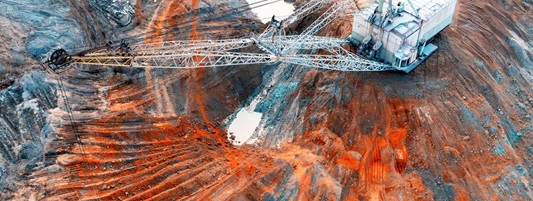Contact us
Send a messageOverview
Critical materials are essential resources needed to produce key technologies for the energy transition, such as wind turbines, solar panels, batteries for electric vehicles (EVs), and electrolysers. Ensuring the availability and affordability of these materials is crucial for achieving a sustainable and efficient energy future.
In March 2022, members of the International Renewable Energy Agency (IRENA) launched the Collaborative Framework on Critical Materials for the Energy Transition. This initiative provides an inclusive platform to foster dialogue, coordinate activities on various topics, strengthen peer-to-peer exchanges, and increase transparency. Its goal is to develop insights into the gaps and solutions needed for an energy transition that relies on critical materials.
To date, four meetings of the Collaborative Framework on Critical Materials for the Energy Transition (CFCM) have taken place. The latest CFCM meeting, held on October 24th, highlighted several key findings from recent IRENA analysis. One major topic of discussion focused on the increasing demand for critical materials in the rapidly growing electric vehicle (EV) sector. As the market evolves, factors such as battery chemistries and sizes could affect the supply-demand balance. Innovation will be key in avoiding potential bottlenecks, coordinated action across the EV battery supply chain is needed, with a strong focus on ensuring a sustainable, affordable, and reliable supply of critical materials by 2030.
Additionally, insights were shared on the importance of improving data governance in the critical materials sector. By learning from data initiatives in other industries, better management practices for critical materials data can be established to guide future decision-making.
Another topic highlighted was potential ways to develop of rankings of critical materials that are vital for the global energy transition. Strategies for establishing and maintaining a list of these materials were presented, underscoring their critical role in meeting global energy transition goals.
Currently, Mexico and Italy serve as co-facilitators of the CFCM.
For more details and updates on the Collaborative Framework, visit the IRENA Critical Materials page.
Related Events
More eventsModalities
The following modalities were discussed and approved by the Members:
- Participation
- Meetings of the Collaborative Framework will be open-ended to all IRENA Members and States in Accession. Members of the private sector, associations, research communities, International Governmental Organisations and Non-governmental Organisations, among others, involved in this thematic area of work will also be invited to participate.
- Facilitators/Co-facilitators
- The Facilitator/Co-Facilitators will be selected from the Membership, will coordinate the deliberations of the Collaborative Framework, and may serve for a period of one year with the possibility of a one-year extension.
- Internal working groups
- The Collaborative Framework may, as needed, form a group(s) of core members to support in-depth discussions on specific topics of interest.
- Should a number of Members share an interest in a particular topic, they can submit a request to the IRENA Secretariat. The request will then be brought into the Collaborative Framework for the Members to decide whether to proceed with it. Should the request go forward, participation in the working group would be possible for all interested Members. Members also noted that the number of working groups should be limited, as capacities and resources are already limited.
- Reporting
- The Facilitator/Co-Facilitators will report to one IRENA Council per year, or more as may be necessary, to inform the Membership on advances made with its workplan. Such reports may focus on experience and best practices identified, recommendations on specific thematic areas of work, areas of research, technical reports, etc.
- High-Level meetings
- Ministerial/High-Level meetings of the Collaborative Framework may be held, as necessary, in the context of the work of the Assembly, annually preceding or post-Assembly, as mandated by - and in the context of - the work of the Assembly.






